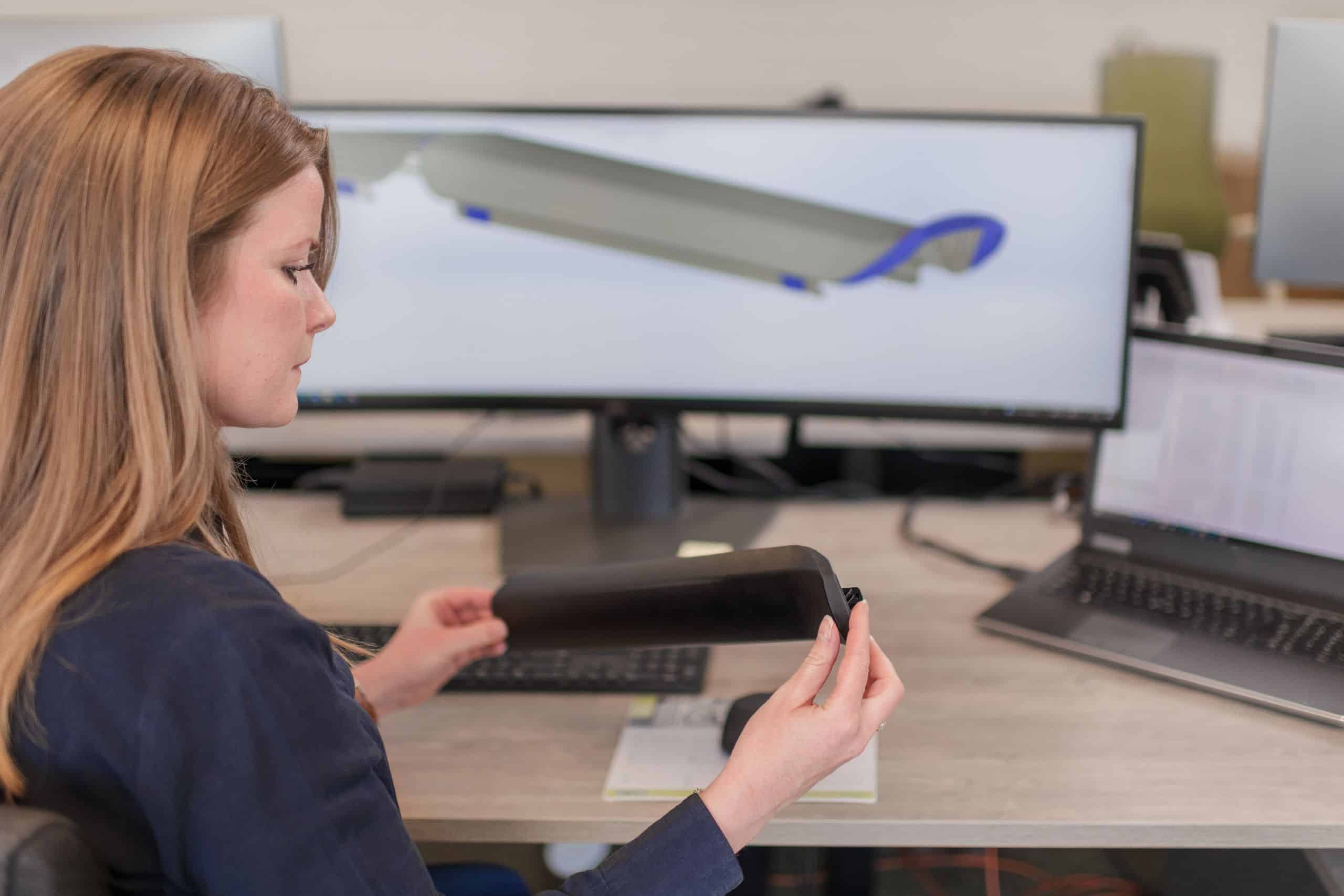
Product design
Product design, together with engineering, forms the basis for a manufacturable and future-proof plastic product. At Timmerije, we combine creativity with technical expertise to develop designs that perfectly match the possibilities of injection molding. By applying methodologies such as Design for Manufacturing (DFM), Design for Assembly (DFA), and Design for Circularity (DFC), Timmerije ensures efficient production, smart assembly, and a longer lifespan for your product.
What is product design?
Product design, together with engineering, forms the basis for a manufacturable and future-proof plastic product. At Timmerije, we combine creativity with technical expertise to develop designs that perfectly match the possibilities of injection molding. By applying methodologies such as Design for Manufacturing (DFM), Design for Assembly (DFA), and Design for Circularity (DFC), Timmerije ensures efficient production, smart assembly, and a longer lifespan for your product.
Plastic product design is used in a wide range of sectors, from consumer goods to mobility. It forms the basis for plastic products that deliver consistent quality and can be mass-produced. It is an essential part of the process of turning ideas into tangible, well-thought-out and future-proof plastic products.
Added value of product design
By incorporating product design right from the start of the process, you and Timmerije lay the foundations for a flexible and efficient production process. This prevents costly adjustments and delays, and gives you an end product that is reliable, functional and future-proof. This offers you concrete advantages in terms of manufacturability, assembly and sustainability:
- Manufacturable from the initial design
By taking the possibilities of injection moulding into account during the design phase, the product is immediately suitable for production. This prevents costly adjustments afterwards and guarantees consistent quality. In addition, well-considered choices in design, wall thickness, ribs and connections ensure a streamlined production process, lower failure costs and a shorter lead time. The result is a product that is technically feasible and economically attractive. - Smarter assembly
A product that can be assembled easily and logically saves time, reduces the risk of errors and increases reliability. By limiting the number of parts, using click or integrated connections and optimising assembly steps, you can create a design that can be assembled efficiently. This not only saves time in production, but also results in a product that meets high quality standards. - Sustainable and future-proof
At Timmerije, we design plastic products with an eye for the long term, i.e. a long service life. By applying circular principles, such as easy-to-disassemble constructions and smart material selection, products remain usable for longer and are easy to recycle. This creates a product that not only performs well today, but is also future-proof and contributes to the responsible use of raw materials.
What methodologies do we use?
To fully exploit the added value of product design, at Timmerije we apply specific design methodologies that optimise the manufacturability, assembly and sustainability of plastic products. These methodologies enable us to anticipate technical challenges and production possibilities early on in the design process. This results in designs that are not only simple and efficient to produce, but can also be assembled quickly, function reliably and have a longer lifespan.
This structured approach reduces the risk of errors, saves time and costs in the production process, and enables us to create products that are aesthetically pleasing, functional and future-proof.
Design for Manufacturing (DFM)
Design for Manufacturing (DFM) focuses on designing products that are technically and economically feasible to produce. By taking into account aspects such as wall thickness, ribs, reinforcements and material selection, we prevent problems during production. The result is a design that can be produced efficiently with consistent quality and minimal failure costs.
Design for Assembly (DFA)
Design for Assembly (DFA) focuses on optimising the assembly of a product. By limiting the number of parts, using smart connections and simplifying assembly steps, assembly becomes faster and more reliable. This results in shorter lead times, fewer errors and a product that can be assembled easily and cost-effectively.
Design for Circularity (DFC)
With Design for Circularity (DFC), we design products that last longer and are easy to reuse or recycle. By applying circular principles, such as easy-to-disassemble constructions and conscious material selection, each design contributes to the sustainable use of plastic. This results in a product that is future-proof and at the same time offers a responsible choice for raw materials and the environment.
By combining these methodologies, Timmerije guarantees that your plastic product design is not only aesthetic and functional, but also manufacturable, assemblable and sustainable. In this way, we create designs that perform reliably from initial concept to series production, can be produced efficiently and are ready for a long service life.